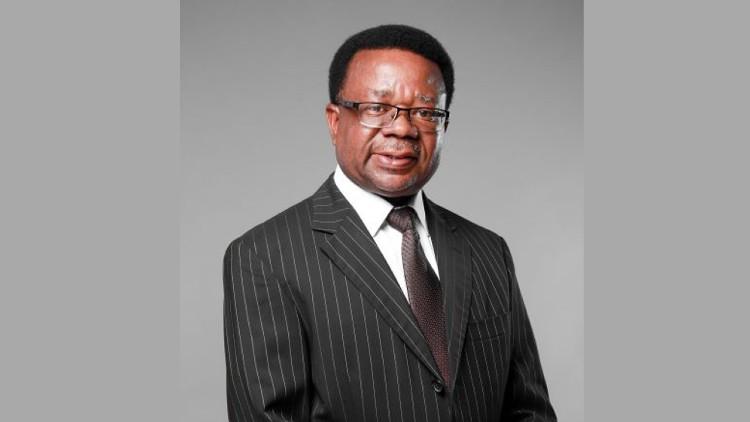Africa-Press – Namibia. The Government Institution Pension Fund is cognizant that organizational culture is a key enabler for any successful strategy implementation. It is against this premise that when the Fund launched its 2018-2023 corporate strategic plan, management thought it prudent to undertake a comprehensive organizational culture survey to examine its current culture and to map out the optimal culture that will propel the Fund to achieve its strategic plan. The study aimed to understand the measured that needed to be implemented to move towards an optimal culture for the Fund.
The GIPF decided to prescribe to the Hofstede institute to have a world-class methodology to assessing its current culture. A comprehensive culture study was conducted in 2018 that involved numerous surveys. One of the key findings of the study was a lack of a clearly defined leadership style within GIPF and as a result, decided to embark on a leadership programme that is aligned to the corporate strategy.
In addition to this, Management decided that it will not take a generic leadership programme, but rather create a tailor-made leadership programme that incorporates the organizational culture study, and the ethics study results. It further wanted a programme that will assist management to achieve the objectives laid out in the strategy. In essence, this gave birth to the global leadership programme by the Gordon Institutes Business School (GIBS) of the University of Pretoria. The tailor-made leadership programme seeks to combine real-life GIPF challenges and contemporary leadership theories by using the GIPF business model, business plan and corporate strategy. The programme targets middle and senior management. The two management teams are divided into two cohorts over a period of two years.
Participants are taken through a series of practical and academic sessions and the programme concludes with a group project that seeks to solve real-life GIPF strategic challenges”, said David Nuyoma, Chief Executive Officer of GIPF.
The programme, which commenced in 2020, also aims to help management think in unison towards the Fund’s challenges and opportunities. It looked at helping the leadership at GIPF to integrate systems thinking in its daily operations. It further made the Fund become more agile, in order for it to survive the fast-paced, dynamic environment, in which it operates. The GIBS intervention also seeks to empower the management team to appreciate each other’s diverse dynamics within their respective functional areas, in an effort to rally together, tackle problems facing the Fund and achieve the objectives of the GIPF corporate strategy.
As of late, the GIPF has been focusing on rare skills in the organisation. To this end, the Fund came up with a talent management programme to capacitate the organisation with unique skills that are scarce. These skills focused on a broad range of areas such as Investment, finance, and information systems to mention a few.
“On 29 September 2021, the Board approved the Talent Management Policy. This goes further in giving us a structured approach in developing talent within the organisation and preparing the organisation through human resources, to be equipped with the task at hand. I am quite happy to have a policy in place, as issues of talent management also touch on the issue of succession. It further ensures the Fund is always well-oiled, irrespective of whether certain individuals are there or not. In that respect, I am very excited about the future of GIPF”, Nuyoma said.
He went on to elaborate that there is no replacement for knowledge, thus the Policy will enable the GIPF team to not only be prepared academically but will also make the Fund remain agile. “What is further satisfying, is that I have seen colleagues rising within the ranks to positions of major responsibility due to the capacity building initiatives we have implemented over the years”, added Nuyoma.
Another key finding of the organizational culture study was that the leadership training should not only be limited to middle and senior management but that those in supervisory roles, should also be capacitated. Therefore, the Fund is currently working on a development leadership programme, specially tailored for supervisors, and for
those just below management level. The idea behind this programme is to have a crop of GIPF leaders that are not only skilled in global leadership practices, but more importantly, who are sensitized to the challenges facing the Fund and can therefore be in a better position to respond to them, not only on a technical level but on a leadership level.
Capacity building is a very important component of a person’s development. In an organisation, it usually happens at an individual level, but what many organisations miss, are the deliberate efforts to develop collectively. The GIPF is truly an exception to this.
The Fund does not only seek to bring cohesion amongst its leadership team, it has also applied a similar strategy towards how it communicates with its various stakeholders.
“GIPF made concerted effort to formulate an integrated marketing and communication strategy. This strategy seeks to create multi-pronged communications and marketing campaigns that target wider audiences. The strategy also assists in determining the right channels that will target the right audience with the right message, especially during the Covid-19 pandemic”, concluded Nuyoma.
The integrated strategy aims to increase brand awareness, especially amongst the members of the Fund and improve internal efficiency in implementing activities geared towards member and stakeholders engagement. All GIPF stakeholders can now look forward to receiving similar messages, tailor-made for the various platforms that they are comfortable with. The Fund continuously strives to engage, maintain, and strengthen its relationship with all its stakeholders, while delivering on its core mandate.






